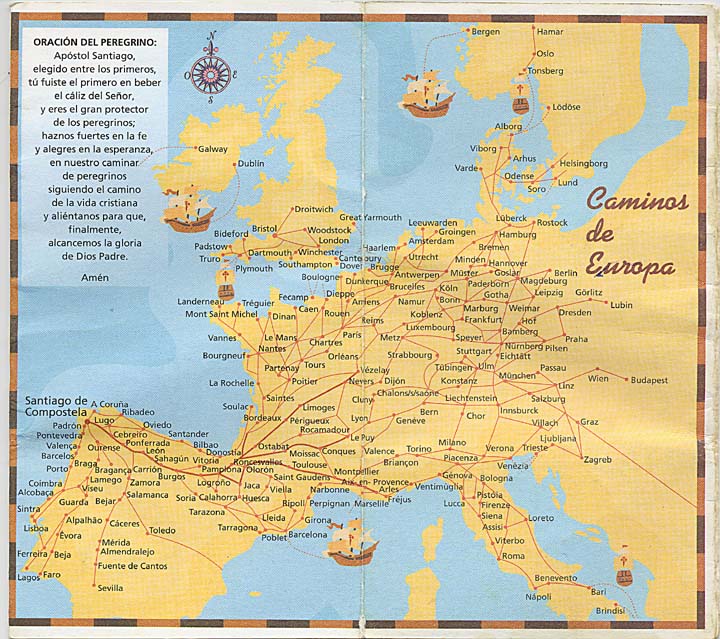When I first told people I was planning to walk 1600kms across Europe, their reaction (after wondering if I was feeling alright) was often "Wow, that's a really brave thing to do". Now, on the road, when pilgrims who are hiking for maybe 10 or 12 days, often in couples or small groups, hear that I'm going all the way to Santiago on my own, the reaction is much the same. On the road when I pass locals I am often hailed with a cry of "Bon Courage!" which is lovely, but for me this trip has never felt like an act of courage or bravery. I had the idea three and a half years ago when I first heard about it from a director I worked with and I just knew in an instant that it was something I would do. So really I've been on my way to Santiago for a lot longer than two weeks. And I guess there is a certain kind of courage needed to take an idea, or a dream, and bring it to life and make it a reality. It is so easy to say no, or to postpone things to a distant and undefined day in the future that may never come, that we now view someone carrying something through as a thing worthy of respect. So yes, maybe I am courageous. But I recently heard a story about a fellow pilgrim which moved me greatly.
This man grew up in East Germany under the Stasi regime. He was a brilliant young nuclear physicist and became a professor and a researcher at a young age and worked with the county's leading scientists. One day when he was in his early twenties, I think, the Stasi came to him and said "We want you to work for us in our nuclear program. If you refuse, you will never work in this field again". He refused. For the next twenty or thirty years he held down a part-time research position in another field but was never able to progress or get funding, and worked an assortment of odd jobs to earn a living. When the wall fell, he realised that other scientists in his field had moved so far ahead that it was impossible for him to catch up. This year he'll go to Australia to present a paper at a conference - the first time in his life he has beeen invited to do this. Finally, after so many years, his work is being recognised.
He is clearly a brilliant man, and he is humble and friendly and kind. And his life has been harder than I can imagine because he refused to work with a regime he believed was wrong. I am taking two months away from almost all responsibilities to wander through beautiful countryside and meet fascinating people. And people call me courageous.
skip to main |
skip to sidebar
two and a half months, 1600kms, one long walk
The Camino
From September to December 2008 I'm walking from Le Puy in France to Santiago de Compostela in Spain - a journey of about 1600kms. Walking around 25kms a day and staying in local pilgrim accommodation, I'll be following the ancient pilgrim road known as the Camino de Santiago.
After 2 years in Tokyo - the world's biggest (and craziest) megalopolis - I want a bit of time out of the crush to remember who I am, what I came into this life to do, and how little we need in life to be happy.
After 2 years in Tokyo - the world's biggest (and craziest) megalopolis - I want a bit of time out of the crush to remember who I am, what I came into this life to do, and how little we need in life to be happy.
Blog Archive
-
▼
2008
(28)
-
▼
October
(16)
- What a difference a day makes
- the cold muddy road to santiago
- first impressions of Spain
- Au Revoir France, Hola Espagne!
- the final week in France
- my new career - interpreter for old German men
- the kindness of strangers
- a very long day, followed by a very un-pilgrim aft...
- Lovely Lauzerte
- a pilgrim's prayer
- a thing or two about courage
- escape from Cahors
- Into the second week
- Things I've learned
- Signs
- the strange road to Nasbinals
-
▼
October
(16)
